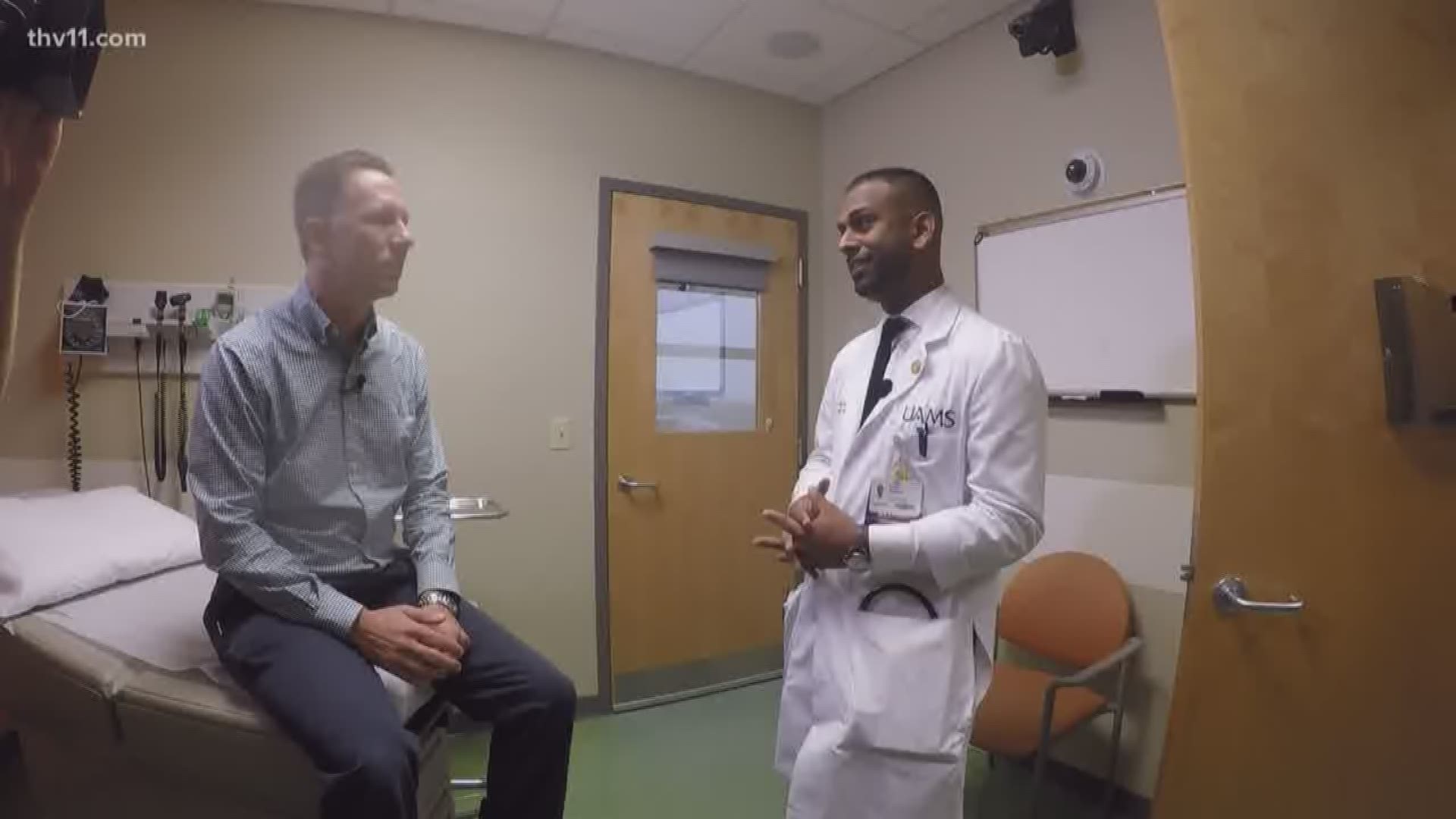A doctor's visit these days is way more than "take two aspirin and call me in the morning." Almost every medical visit is a quick check-up...emphasis on quick. The days of in depth discussions with a family doctor are never coming back. So we’re finding out how to make the most of your exam by asking a doctor to "tell it to me straight."
Dr. Felix Jolly is a second year resident at University of Arkansas for Medical Sciences in Little Rock. He agreed to answer our questions about how patients can make the most out of their visit and he can make the most of his busy schedule. These are edited excerpts from the conversation.
Rolly Hoyt: The title of this is "tell it to me straight." So how many times to patients ask you that?
Dr. Jolly: Not so directly but often. I have 14 to 16 patients to see. That's the tough part. Fifteen minutes a person. So in an hour I usually get four patients and to tell you the truth I'm usually falling behind. In those 10 minutes I'll ask the patient "what brings you into the clinic today?" And that first question determines the course of the next 10 minutes. And the worst thing I hear from patients is "I don't know doc."
RH: So try to be specific but not too specific.
DJ: Something that I tell my patients often is not to get bogged down in numbers. People are asking for very specific numbers, down to decimal points. Really those are arbitrary values, and even I have to look up what the normal range of certain electrolytes are.
Words like “electrolytes” are a sign doctors are falling into medical -speak. That’s something UAMS tries to train away.
“It's hard to remember that not everybody went to medical school or pharmacy school,” said Katie Leah, the program coordinator for the UAMS Center for Health Literacy. “Patients need to plan for their visits. They need to write down their medical history. Write down the symptoms they are having and the health problems they've had in the past.”
RH: So what do you need on that list?
DJ: It tells me a lot when somebody comes in with a log of sugars, of pressures and if they bring in all their medications. I can't make recommendations unless I know what they are doing at home and it's easier if patients are writing it all down.
RH: Do you try to live up to your name “jolly” while on rounds?
DJ: It makes it easier if you can keep it light-hearted. You know, happy, funny.
RH: You gotta put those hands in some places that aren't always comfortable.
DJ: Yeah a joke helps.

